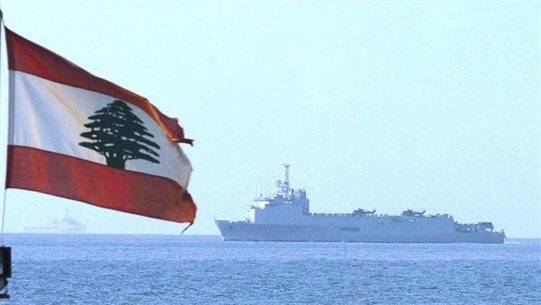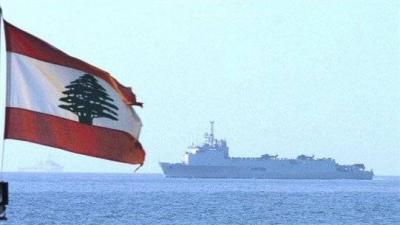The meeting between the U.S. mediator for the demarcation of the Lebanese maritime borders with Israel, Amos Hochstein, and the Israeli side has revived momentum in the negotiations, which have been suspended for nearly a year. Sources following the negotiations have indicated signs of a "breakthrough" that could lead to the resumption of indirect negotiations in Naqoura. Positive signals began to appear in the U.S. State Department's statement on Monday, where spokesman Ned Price stated that "after discussions with Lebanese counterparts earlier this month, Senior Energy Security Advisor Amos Hochstein held talks last week with Israeli counterparts regarding their maritime borders." He affirmed that "the mutual discussions were productive and moved forward towards narrowing the differences between the two sides," adding that the U.S. "will continue to work with the relevant parties in the coming days and weeks."
Lebanese officials do not know what Hochstein will bring next, nor has a date for his return to Lebanon been set, awaiting the return of U.S. Ambassador to Beirut Dorothy Shea, who is currently abroad. Sources said, "We are waiting for Hochstein's return to understand what he brings from the Israeli side so that we can act accordingly."
During his visit to Lebanon, the U.S. mediator met with President Michel Aoun, who stressed "Lebanon's sovereign rights in its waters and natural resources," and provided a response to the American proposal that the mediator had previously presented months ago, which Hochstein would then relay to the Israeli side. He also met with Prime Minister Najib Mikati, Foreign Minister Philippe Bou Habib, and several MPs and politicians. The sources stated that Hochstein's recent visit to Beirut "yielded positive results regarding the resumption of negotiations." The main development is that the President "conveyed to the Americans what would allow the resumption of negotiations, thereby convincing the Israeli side to return to the table," following Tel Aviv's reluctance to resume discussions due to Lebanon's previous maximum demands, specifically the demand for line 29, which is now off the table.
Line 29 has long represented the maximum negotiating position for Lebanon. Sources close to the file indicate that the difference between now and before is that the Lebanese negotiator "has proposed a new angle for negotiations, different from previous proposals that complicated the talks, regardless of their details, with the goal of resuming negotiations." Lebanon sees no option but to resume negotiations at this stage, enabling it to restart exploration for gas and oil in its territorial waters and to quell potential tensions that have escalated recently following threats concerning the offshore production ship "Energean," which docked 2.5 miles south of line 29 for production from the Karish field.
Sources following the negotiation process and U.S. mediation emphasized that the foundation is the framework agreement announced by the Speaker of the House Nabih Berri in early October 2022, underscoring in statements to "Asharq Al-Awsat" that "it cannot be disregarded," as it calls for negotiations to fix the borders and sign at a later time.
The sources view the recent U.S. statement as positive, given the American indication of bridging the significant gap and moving away from maximum negotiation proposals, transitioning to the second phase, which is to return to resuming negotiations through the quadripartite committee in Naqoura. These discussions involve indirect negotiations between Lebanese and Israeli delegations, under the United Nations' auspices at its Naqoura headquarters, facilitated by American mediation.
The sources noted that simply resuming negotiations "will allow for proposals to be made and negotiated based on them in order to reach a solution that places Lebanon on the path to exploring and extracting its resources from its territorial waters." This positivity aimed at returning to the negotiation table in Naqoura was echoed by Deputy Speaker Elias Bou Saab, who stated that "the U.S. State Department's statement regarding the talks Hochstein held with the Israelis on the maritime border demarcation, which he described as productive, is a positive development, and we appreciate the U.S. administration's commitment to continue communication in the coming days, which we hope leads to the resumption of indirect negotiations in Naqoura."
The Israeli Ministry of Energy announced last Sunday that Israeli negotiators met with the U.S. mediator in an effort to resolve the maritime border dispute with Lebanon. The ministry stated that the team listened to the latest updates following the mediator's visit to Lebanon and that the two parties discussed formulating constructive approaches to move forward in negotiations. It added that it will safeguard Israel's economic and security interests but intends to "resolve the issue in the near future."




